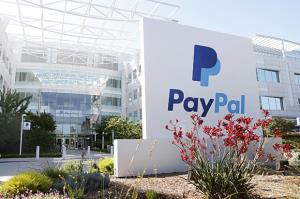The Ebay-PayPal Divorce: What This Means For E-Commerce
Divorce is usually never good news. It involves a great deal of turbulence and often a shifting of alliances that makes things very uncomfortable for the friends and family directly involved. In the case of corporate entities, particularly PayPal and eBay (NASDAQ:EBAY), however, it appears that the split is amicable. It is actually considered something ultimately necessary for both parties to develop along their own paths, independently of one another. Such an atypical divorce leaves people wondering whether this was the right move. But as far as we know, it appears that the general consensus is that this will be beneficial to both companies, their shareholders, their future partners, and their customers.
The PayPal-eBay Paradox
Originally, the acquisition of PayPal proved to be a great boon to both companies. eBay’s cozy relationship with the online payment facility allowed it more flexibility than other e-commerce venues regarding transaction fees and whatnot. PayPal benefitted by cementing its association with eBay, further increasing its profile among its customers and creating a reputation for itself as the most trusted and capable international transaction provider. It was a match made in heaven.

Fast-forward to 2015, and things aren’t quite the same. More e-commerce providers have begun dotting the landscape, and the fact that PayPal is associated firmly with eBay hampers its ability to forge relationships with some of the newer players in the online retailer industry such as Amazon.
On eBay’s side of things, PayPal was starting to become a ball and chain on the company’s own ambitions. Because of two massive companies being glued together, there was no reason why large investors would consider an acquisition of eBay with the thought that another possible merger might surface. From the company’s point of view, its split from PayPal would force shareholders to appraise both companies as separate entities, eventually raising the value that both companies can bring. Attracting investment can help eBay grow as an e-commerce entity.
This, with the added benefit of both companies eventually making forays into other markets on their own, has become a very profitable divorce for both parties. Perhaps divorces should end like this more often.
Can PayPal Remain Competitive?
PayPal’s departure from eBay sounds like an ideal move for the company, now finding itself capable of entering different markets. But now we’re living in a time where currencies like Bitcoin are changing the way we purchase things online.
More threatening to PayPal’s competitiveness are other e-commerce providers that provide multi-channel business-centric approaches to point-of-sale and transaction management, such as Vend, which provides businesses with significantly more flexibility in the way they accept customer transactions on both online and offline sales channels.
The new frontier for Internet commerce is perhaps one that PayPal cannot really fully take advantage of. But does the company even have to compete with these new contenders? By shaking hands rather than brandishing swords, it seems that the PayPal could remain competitive simply by making its foray into other retail providers as an option on their platforms. Vend, the software-based POS provider mentioned earlier, includes PayPal as an option that businesses can use to accept payments from their own customers. This seems like the prevailing notion of what the company may do to expand its influence in the transaction market.
By no longer having a tight relationship with eBay, PayPal can suddenly start linking up with multiple partners, offering them advantageous incentives such as minimal transaction fees. An alphabet soup of partners would secure PayPal’s edge in market share. More so, it would do this without having to directly compete with these providers, instead offering itself as a third-party option. For PayPal, this sends a signal to investors that it will continue to grow with its newfound freedom. The only thing left is for Dan Schulman (the company’s CEO) to deal with the imminent threat of mobile payment platforms like Apple's (NASDAQ:AAPL) Apple Pay and Google's (NASDAQ:GOOG) Android Pay.
There you have it. In 2002, the eBay-PayPal union was a match made in heaven. Going on to 2014, their divorce was also “made in heaven.” As unusual as it seems, all the signals point to this event being the most logical conclusion of a long and lucrative relationship that has gotten them this far. They can now only go further from this point on.
The material appearing on this article is based on data and information from sources I believe to be accurate and reliable. However, the material is not guaranteed as to accuracy nor does it ...
more


